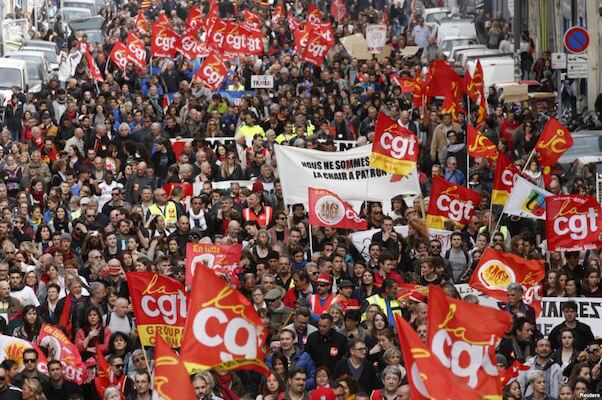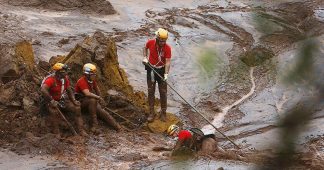1. The working time or the number of working hours in a day is the time which, according to the agreement on employment (Articles 48, 60, 96, 98, 103 of the Industrial Labor Law), a workman is obliged to be in the factory for the performance of work and at the disposal of his manager.
Note 1: In underground work the time used to go down into the mine and to come up to the surface is counted as working time.
Note 2: The working time of workmen sent on tasks outside of the boundaries of the factory is determined by special agreement.
2. The working time as determined by the rules of the internal organization of the enterprise (Clause 1, Article 103 of the Industrial Labor Law) should not exceed eight working hours a day and forty-eight hours a week, including the time spent in cleaning the machinery and putting the establishment in a state of orderliness.
On the day before Christmas (December 24) and on Holy Trinity Day work stops at noon.
3. After not more than six hours of work there should be a recess of not less than an hour for food and rest. Recesses are determined by the rules of the internal organization. During the recess the workman is free to dispose of his time and may leave the boundaries of the establishment. During the recess motors, commutators, and machines should be stopped. Exceptions to this rule may be permitted in case of overtime (as provided in Articles 18-22 of this law) in case of those machines and commutators that control ventilation, water supply, lighting, etc., and in such other cases where it is impossible to stop work for technical reasons (as, for example, unfinished casting, etc.).
Note 1: Enterprises that are recognized by law or the Main Labor Office as continuous and on a three-shift day do not conform to the rules on recesses but they must give the workman the right to take his food during work.
Note 2: If the conditions of work are such that the workman cannot leave his place of work to eat, a special room or place is to be provided for that purpose. This is obligatory in case of men who come in contact with materials (lead, mercury, etc.) which, according to the rulings of the main board of the factory and mining industries (or the organ taking its place), are injurious to health.
4. The total amount of time spent in recesses should not exceed two hours a day.
5. Night work is from 9:00 P.M. to 5:00 A.M.
6. Boys and girls under sixteen years of age are not to be employed for night work.
7. For enterprises which are working on a two-shift basis night work is reckoned from 9:00 P.M. to 5:00 A.M. Recesses (Article 4) may be shortened to half an hour for each shift.
8. In cases where workers (brickmakers for example) wish to have a longer noon recess or climatic conditions make [a longer recess] desirable the main industrial board may make exceptions to Articles 4, 5, 6, and 8 of this law.
9. In addition to the rules mentioned above the following regulations apply to minors (under eighteen years of age): (a) those under fourteen years of age are not allowed to do hired work; (b) those under eighteen years of age cannot be employed for more than six hours a day. Note: After January 1, 1919, all children under fifteen years of age and after January 1, 1920, all under twenty years of age are not permitted to be hired for work.
10. The holidays when no work is allowed (Clause 2, Article 103, Industrial Labor Law) are all Sundays and the following named days: January 1, January 6, February 27, March 25, May 1, August 15, September 14, December 25, 26, Friday and Saturday of Holy Week, Monday and Tuesday of Easter week, Ascension Day, and the second day of the Descent of the Holy Ghost.
Note 1: According to their belief non-Christians may have other days of rest in place of Sundays. They are, however, obliged to observe all the other holidays enumerated in this article except those indicated below.
Note 2: At the request of a majority of the workmen of an industry or a section of it, other free days may be substituted for January 1 and 6, August 15, September 14, December 26, Saturday of Holy Week, and Easter Monday.
11. In the case of a one-shift day the minimum duration of Sunday and holiday rest to which a worker is entitled is forty-two hours. In the case of a two- or three-shift day the minimum hours of rest are determined by agreement with the labor organizations.
12. By mutual consent of the manager of the industry and the workers, the latter may (as a departure from the schedule of holidays indicated in Article 11) work on a holiday instead of on a week day. This agreement should, however, be reported immediately to the proper authorities who supervise the execution of this law.
13. The main board of factory and mining industries (or the organ taking its place) has the right to issue rules permitting departures, as necessity arises, from the rules enumerated in Articles 3, 4, 5, and 8 in the case of those establishments …. which must work at night or irregularly at different seasons of the year (such as work connected with the light and water supply for cities).
14. The working hours indicated in Articles 3, 4, 5, and 8 are to be further reduced in the case of industries and occupations particularly harmful to health and in which the workers are exposed to …. poisons. …. A list of such occupations and industries with the length of working time in each as well as other conditions of work must be prepared by the main board of the factory and mining industries (or by the organ which takes its place).
15. Women and minors (under eighteen years of age) cannot be employed for underground work.
16. By agreement with the workmen and with the approval of the workmen’s organizations departures from the regulations stated in Articles 3-5 and 8-12 are permitted in case of workers engaged in supplementary work such as repair work, care of the boilers, motors, lathes, heating, water supply, lighting the premises, guard and fire duty …..
17. Overtime is work done outside the regular working hours and is permitted only under the regulations stated in Articles 19-22 and is paid for at a double rate.
18. Women and minors under eighteen years of age cannot work overtime. Men over eighteen years of age may work overtime if the workmen’s organizations approve [and then only in exceptional cases when failure to do so may lead to interruption and harm to the plant and workers] …..
19. [A special permit from the Commissariat of Labor or the Labor Inspector is required for overtime work.]
20. All overtime work is recorded in the workmen’s account books …. and in the office books.
21. Fifty days is the maximum overtime per year allowed for each branch of industry under the conditions enumerated in Articles 19-21. A separate record is to be kept of the overtime even if it applies to only one workman in the branch.
22. The duration of overtime of any one worker shall under no circumstance be more than four hours in two consecutive days.
23. In the near future [that is], until the end of the war, organizations engaged in the work of defense may, by agreement with the management, set aside the regulation of overtime work (Article 19-23) and in industries engaged in the work of defense recesses (Articles 4-6) may not be enforced, provided the workers and workers’ organizations agree to it.
24. The present law becomes effective by telegraph.
25. This law applies to all industries and occupations regardless of size or ownership and to all. persons hired to work.
26. Violation of the present law is punishable by imprisonment for a period not longer than one year.
Yu. LARIN
Acting Commissar of Labor
Notes
[1] On November 15, 1917, there appeared in Volia Naroda, No. 161, p. 2, the following letter signed by A. Bykov and referring to the decree on the eight-hour day: ” …. The text of the [decree] is a verbatim reproduction …. of my draft of a law relating to hours of labor which was written in the spring of this year on the basis of materials supplied by the Party of People’s Freedom [Cadets]. It was intended to submit the draft …. to the Industrial-War Committee and later to the Ministry of Trade and Industry (Section of Labor). As published the decree retained references to the ‘main board of factory and mining industries’ which no longer exists …..”











